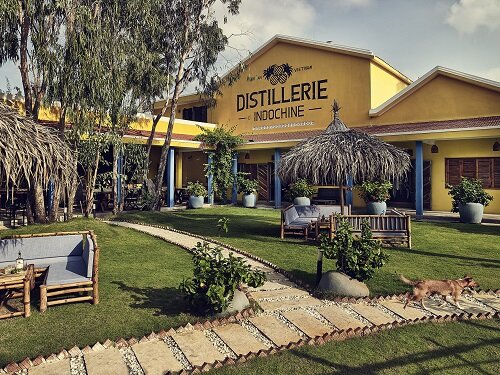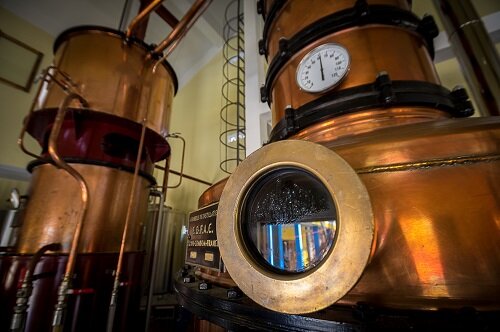Get To Know Vietnam’s Two Premium Rhum Distilleries
Distillerie Indochine
Once the day’s coffee quota is met, Vietnam’s citizens partake in a bia aka beer. During special occasions, shots of locally-made rice wine get passed around while speakers blast karaoke. Imported (and often expensive) spirits have long appeared in high-end restaurants and cocktail bars around the country. But it’s not until recently Vietnam began distilling award-winning alcohol.
Rhum Belami
Rhum Belami
The creation of a Vietnamese rhum started in 2016. Rhum Belami’s Owner, Master Distiller, and Blender Rhoddy Battajon knew he wanted to make a spirit as soon as he tasted the fresh sugar cane juice on the streets of Ho Chi Minh City. “Rhum was not that popular before I came and introduced Rhum Belami to the country,” says Battajon. With his roots in the Caribbean island of Lesser Antilles, Battajon learned how to make alcohol in France. “My family is dedicated to the food and beverage industry, so it was kind of natural for me to forge my own legacy. When I saw that no rhum was made locally, I saw my opportunity to follow the same path as my father,” says Battajon.
Rhum Belami uses fresh local sugarcane, homemade baker yeast and various Vietnamese botanicals. One of their most popular is their Premium Dark Rhum 55 percent alcohol, aged for five years in an oak cask pre-filled with Vietnamese roasted coffee beans and cocoa beans from Marou, Vietnam’s most famous chocolate maker. Their rhum is also sold in France, Taiwan, and the Netherlands.
Sampan Rhum
Two years later, Sampan Rhum emerged onto Vietnam’s burgeoning spirit scene. Founded by three French immigrants, they set up their distillery, Distillerie d’Indochine, outside of the ancient town of Hoi An. “Vietnamese people are more and more curious about local, premium, and natural products. We have many people who come to our distillery to visit. It’s a very unique place in Vietnam with unique equipment,” says Co-Owner and Master Distiller Antoine Poircuitte. The equipment, like the massive full column copper, still is imported from Armagnac, France.
Rhum distillation
Sampan is made with 100 percent natural ingredients, including locally-sourced pure yellow sugarcane that adds to the flavor. “We set up our distillery close to the [sugarcane] field to get the minimum time between the cut and the press to guarantee the maximum freshness of the sugar cane juice we are using,” says Poircuitte. “We are also located at the same latitude as the French Caribbean, where the pure sugar cane rhum is born. It’s like a tribute to the origin of sugar cane in Southeast Asia and the origin of rhum.” At their small distillery (which also houses a tasting room and villa for rent), they produce four award-winning white rhums ranging from 43 percent alcohol to 64 percent alcohol and are currently distilling two single barrel rhums, and a vintage rhum aged for three years in a retired Cognac barrel.
“Rhum is not well known in Vietnam,” says Porcuitte. So, Sampan is working closely with mixologists, highlighting that their product is natural, locally-made, and award-winning to promote the spirit in different bars, hotels, and restaurants around the country. It’s available in nine countries worldwide, including France, the UK, and Cambodia. They plan to be available in 15 countries by the end of the year.



